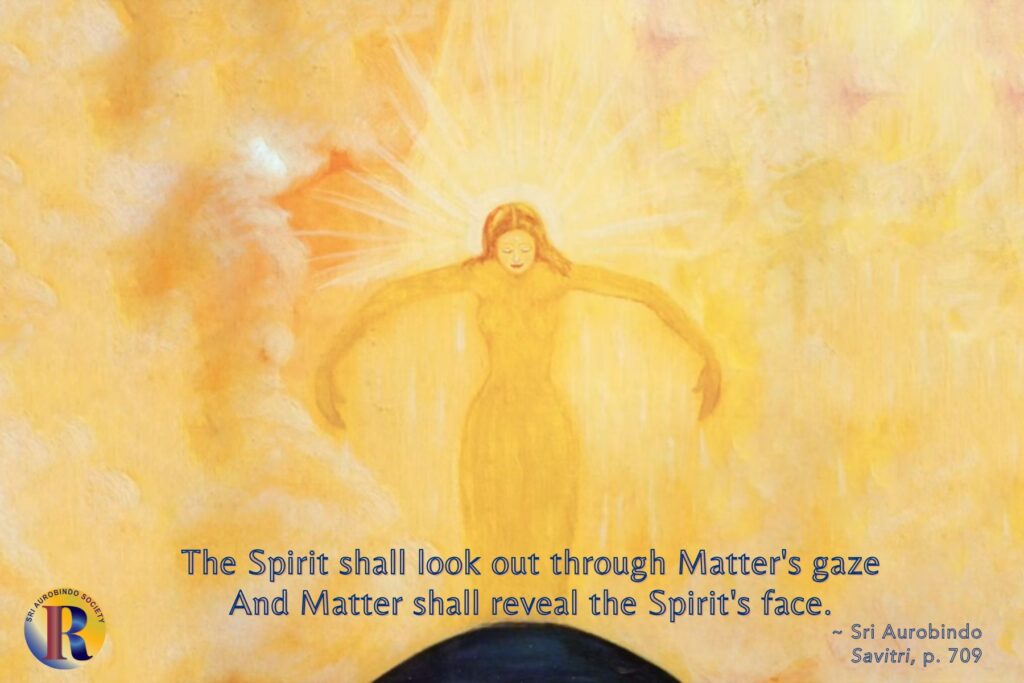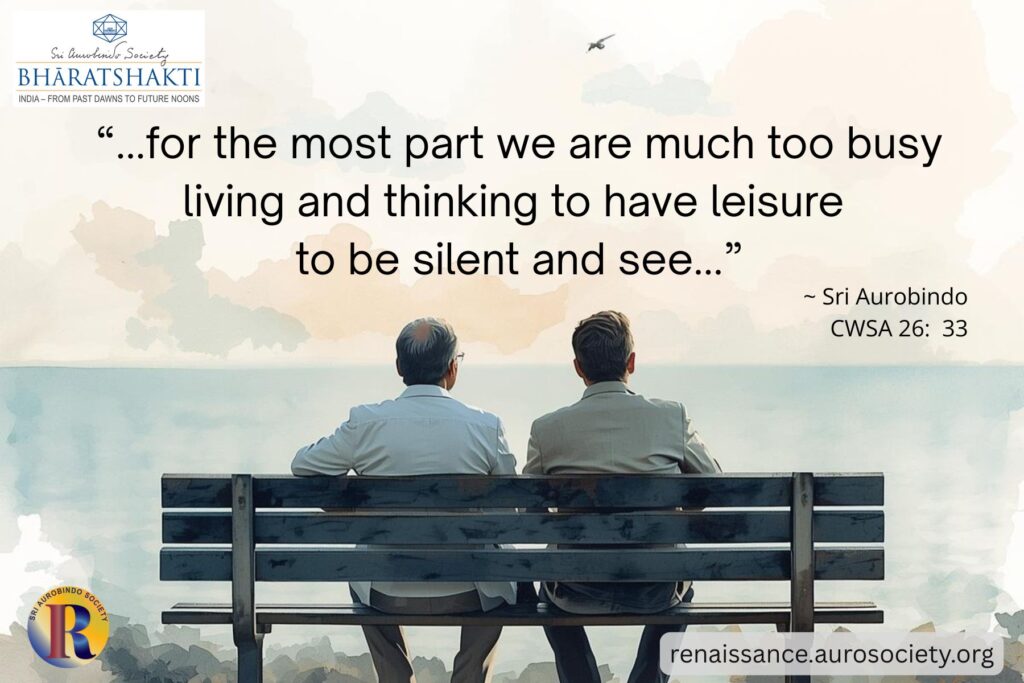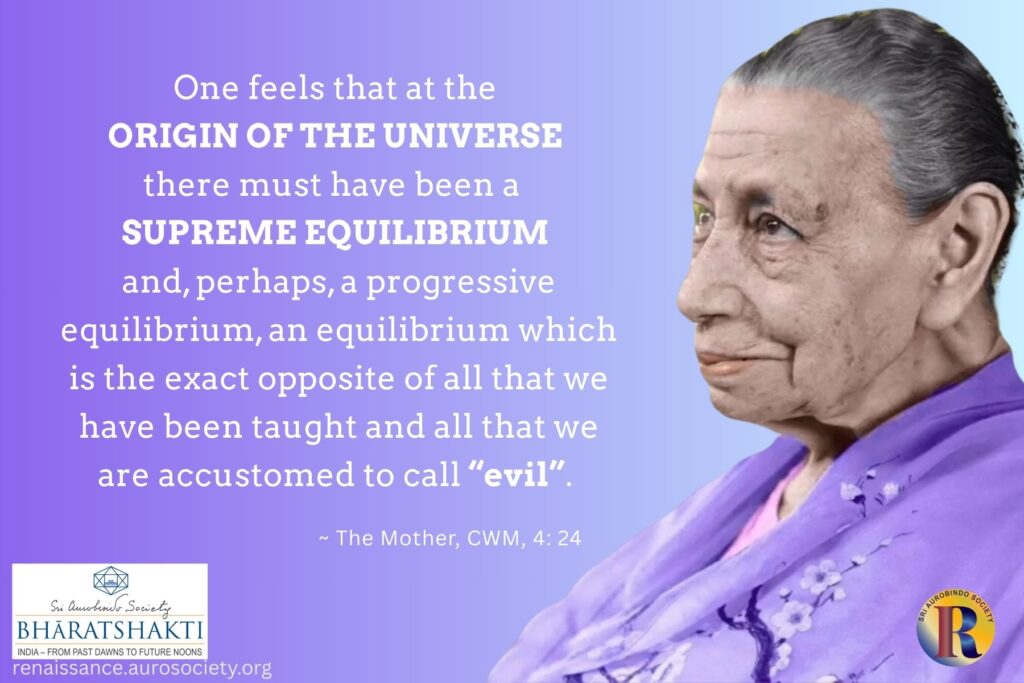Editor’s note: Shobha Mitra (1933-2019) joined Sri Aurobindo Ashram in 1952. A musician, composer and in-charge of the music section of the Ashram School, she also taught vocal music at the Last School in Auroville in the 1970s. She is especially remembered for conceptualizing a special musical programme titled Sri Aurobindo and the Mother on India and Her Future on the occasion of Sri Aurobindo’s Birth Centenary in 1972. In the same year, a collection of her musical compositions titled Loving Homage was released by Sri Aurobindo Society.
We feature an excerpt from her memoirs titled Living in The Presence (2013, Sri Mira Trust), which is an English translation by Maurice Shukla from the original Bengali version titled Sri Mayer Divya Sannidhye (published in 2012). The transparency and sincerity of her narration makes this writeup a profound lesson in humility for the readers. We also learn how the Mother emphasised for the disciples importance of cultivating humility and of dissolving ego and a sense of doer-ship of works.

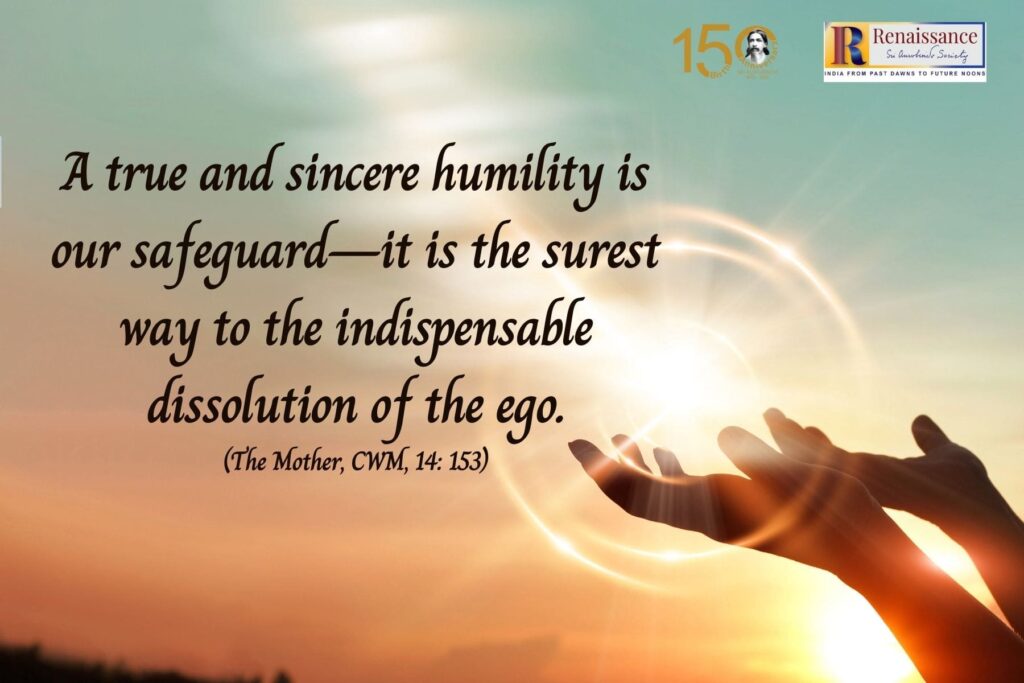
The Hour of God: A dance-drama
I had dramatized Sri Aurobindo’s The Hour of God in English. At the beginning of 1964, myself and K, a friend of mine, decided to inform the Mother about this dramatisation and if She consented, we would put it up for the 1st December programme. I had divided Sri Aurobindo’s prose piece into three parts. And each of the three parts was expanded by including extracts from other writings of the Master.
I first showed my dramatisation to Norman da to whom the Mother had, on several occasions, given charge of the theatre related and recitation items for the 1st December programme. Therefore, I first took Norman da’s opinion on my dramatisation and whether it could be put up as the 1st December programme at the Ashram. He really liked the adaptation.
Read:
Why Work and How to Work — Sri Aurobindo Guides
I then sent the script to the Mother and told Her about our wish to put it up. The Mother asked us to show it to Nolini da. Then through Nolini da, the Mother sent us word that the 1st December programme of that year (1964) would be The Hour of God.
Along with my friend K, we requested the Mother if She could record The Hour of God in Her voice. She agreed. Sunil da composed the music for it and we began our work.
We first selected the participants for the three parts. Then the rehearsals started at the Ashram Theatre. Over a few days, I noticed that my personal contribution in this programme suddenly began to decrease. Besides practising for my own part in the programme, I did not have much else to do!
K had taken over the whole thing! Norman da too noticed this.
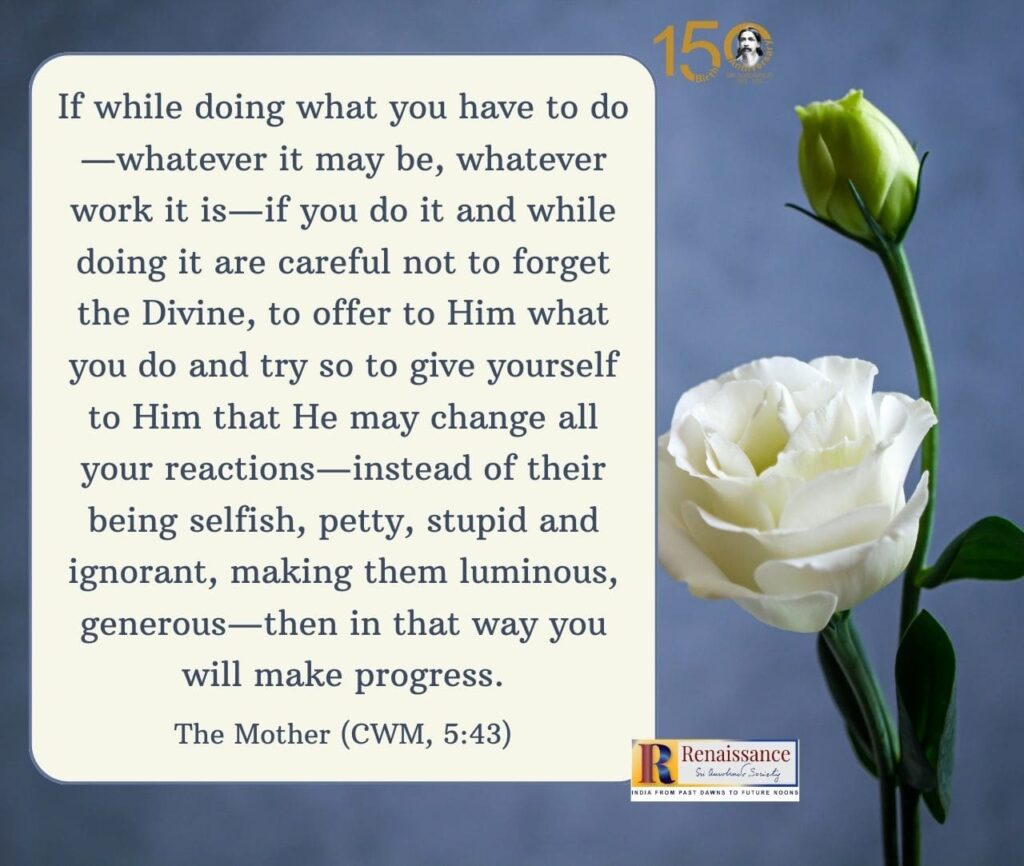
When this went beyond a certain point, Norman da suggested that I write a letter to the Mother about it. Let me simply share here with the readers my letter and the Mother’s reply to it:
Mother Divine,
We have started our work on The Hour of God. We want our labour to be a true offering to You and to Sri Aurobindo.
Mother, I want to bring to your kind attention that this idea of dividing The Hour of God into three parts and developing each part with suitable lines from Sri Aurobindo is mine, although K has never thought it necessary to mention it to You.
When it was necessary to divide the text, prepare the framework of the whole programme, K took my help because it Was my idea and she did not know anything about it before. When that was done she started neglecting me completely. She began discussing with B and C, and has been deciding everything and occasionally letting me know. Sometimes she forgets to do even that. She perhaps thinks that this programme is part of her ’Saturday Programme’ and has started organising it herself.
She contacted S, V, M etc. and instructed them on their parts. I felt bad, Mother, because, as You know I had an earnest desire to give expression to my own creation, which I could not. Anyway, I have not said anything to K so far. I took it as an opportunity to progress a step forward.
Recently she has started behaving so rudely with me that it has become very difficult to work peacefully. She never informs me about the work, she does not even recognise me at times. Mother, pray remove this unfriendly feeling from us.
Mother Divine, I think You are well aware of the fact that S, K, B, and myself are organising the whole programme, that is — each one is composing or directing a portion of the whole.
I feel, Mother, it is necessary to have one of us as a general organiser because there must be one person to connect all the different scenes. B and myself, we think that as S is senior to us and the most experienced in stagecraft among us, she can be the general organiser of this programme. This will quietly avoid a lot of disharmony. Mother, pray for your approval.
My pranams at Thy feet,
Shobha
In the letter wherever I had spoken of ’I’, ’my’, ’mine’, the Mother had underlined these in red ink and She wrote at the end of my letter:
I suppose that now that I am informed of these important facts your EGO is satisfied.
The Mother
Blessings.
The 1st December programme came to an end. I still had not been able to overcome my sense of ego, but kept quiet about it. I prayed to the Mother to help me change my nature.
My birthday arrived and the Mother gave me a card with a birthday message. There were some grass-flowers stuck on the front of the card. The Mother’s spiritual significance of this flower is Humility!
Inside the card was the following message in French which I reproduce here for the readers.
English translation:
Happy Birthday to Shobha with my blessings, so that you can keep humility in your heart, for it is this that takes you most certainly to the realisation of the Divine.
The Mother
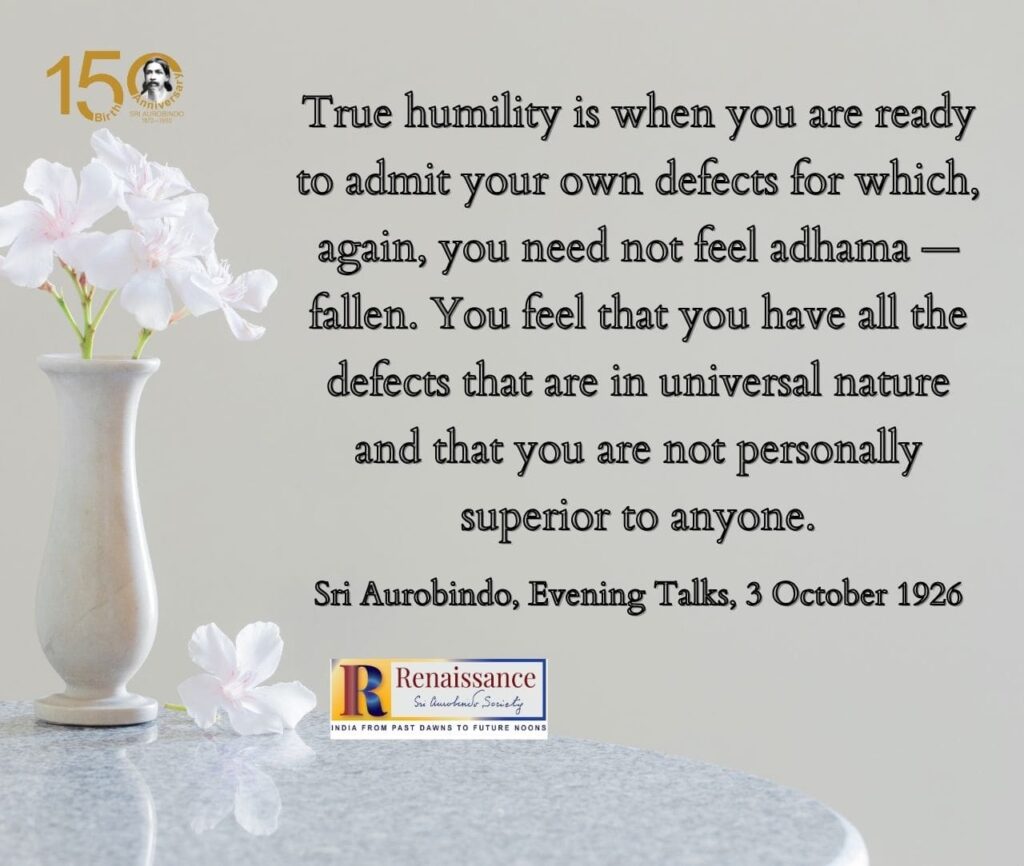
Also Read:
“True Humility is Humility Towards the Divine”

The Divine Worker
. . . where there is not the personal egoism of the doer, desire becomes impossible; it is starved out, sinks for want of a support, dies of inanition. Outwardly the liberated man seems to undertake works of all kinds like other men, on a larger scale perhaps with a more powerful will and driving-force, for the might of the divine will works in his active nature; but from all his inceptions and undertakings the inferior concept and nether will of desire is entirely banished, sarve samārambhāḥ kāmasaṅkalpavarjitāḥ.
~ Sri Aurobindo, CWSA, Vol. 19, p. 179
~ Design: Raamkumar

